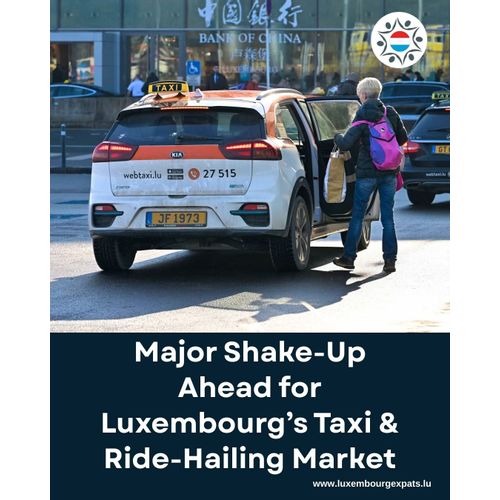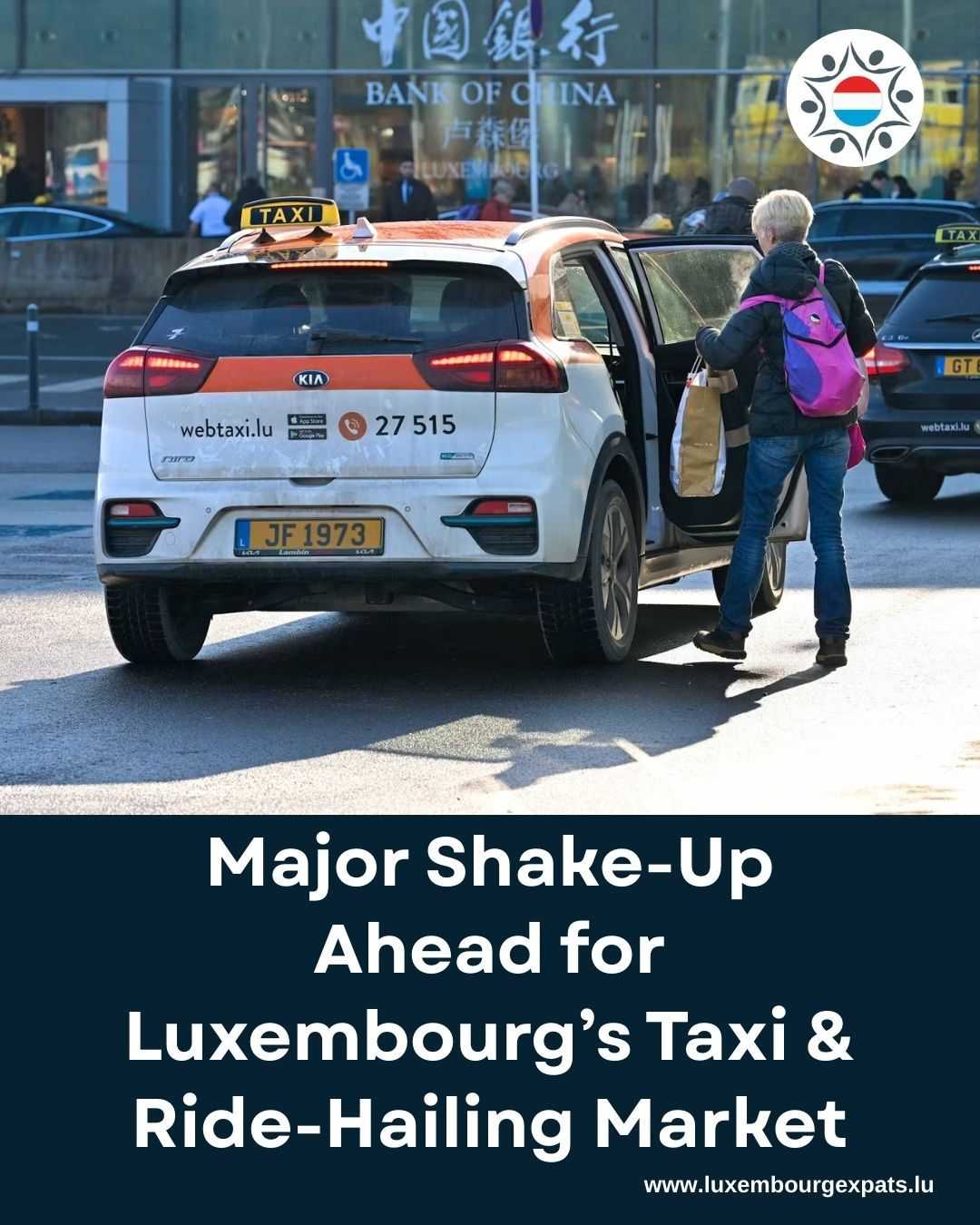Major Shake-Up Ahead for Luxembourg’s Taxi and Ride-Hailing Market
LuxembourgPosted on 22 September 2025 by Team · 2 min readLuxembourg is preparing for the most significant overhaul of its passenger transport sector in decades. A year after Uber entered the country through a partnership with Voyages Emile Weber, the government has unveiled a reform that will fully integrate ride-hailing services (known locally as “VLCs”) into the legal framework.
The reform, presented by Transport Minister Yuriko Backes, aims to achieve two objectives: increase competition and consumer choice while modernizing a sector long dominated by traditional taxis.
End of License Limits by 2030
One of the most dramatic changes is the gradual phasing out of license limits. Until now, the number of taxi licenses was capped under a “numerus clausus” system. This cap will be raised progressively to 2,850 by 2029 and abolished entirely in 2030.
“The only way to bring down prices is to open the market,” Backes said, stressing that liberalization was inevitable and necessary.
Equal Rules for Taxis and Ride-Hailing Drivers
For the first time, taxi and VLC drivers will be subject to the same rules. Both groups will be required to complete a 16-hour mandatory training course — at their own expense — and present a certificate of completion.
VLC platforms, whether local or international, will also need ministerial approval and will be obligated to comply with Luxembourg’s labor laws. Authorities have promised strict oversight to ensure drivers’ rights are respected.
Transparent Pricing for Passengers
The reform puts consumer protection at its core. Taxis will be required to use taximeters to calculate fares per kilometer, with real-time price displays and receipts issued at the end of each journey.
VLC operators, meanwhile, will need to provide passengers with a fixed price upfront when trips are booked — a system already widely used in major international cities.
Geographical restrictions on taxi and VLC operations, long seen as a brake on competition, will also be scrapped.
Changing Habits in Luxembourg
Minister Backes highlighted that taking taxis in Luxembourg is not a common reflex compared to other countries. “The occupancy rate is very low. Too many cars wait all day at the airport for business travelers, instead of serving local residents. This reform is about making taxis and ride-hailing a regular, accessible means of transport for everyone.”
By reshaping the market, the government hopes to encourage more everyday users to choose taxis or VLCs, thereby reducing inefficiencies and empty vehicle trips.
While the reform represents a major opening of the market, it also seeks to reassure traditional taxi operators who fear losing their long-held position. The government argues that aligning standards, training, and pricing rules will create fair competition while offering consumers more choice.
With the countdown to 2030 underway, Luxembourg’s transport landscape is set for a profound transformation — one that could redefine how residents and visitors alike move around the country.
Know More: Luxembourg liberalises the passenger car and taxi sector to reduce prices - The essentials
I am your contact
Team
Chat








